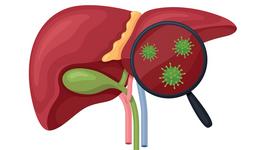Excision’s EBT-101 Demonstrates Safety in Clinical Trial But Does Not Cure HIV
CMN Intelligence - The World’s Most Comprehensive Intelligence Platform for CRISPR-Genomic Medicine and Gene-Editing Clinical Development
Providing market intelligence, data infrastructure, analytics, and reporting services for the global gene-editing sector. Read more...
Data presented at the 27th ASGCT meeting last week revealed that while Excision BioTherapeutics' EBT-101 met the primary and secondary endpoints of safety and biodistribution/ immunogenicity, respectively, it did not prevent viral rebound in three individuals who stopped anti-retroviral medication in a Phase 1/2 clinical trial.
Excision is developing EBT-101 as a potential functional cure for chronic HIV infection by targeting latently integrated proviral RNA.
The objectives of the Phase 1/2 trial are to evaluate the safety and pharmacodynamics of EBT-101 in individuals living with HIV type 1 (HIV-1), which is the subtype present in about 95 % of HIV cases worldwide.
EBT-101 is well tolerated but does not prevent HIV-1 rebound
As CMN previously reported, EBT-101 demonstated curative potential in pre-clinical studies in mice and macaque monkeys. Excision Biotherapeutics received FDA clearance to initiate the clinical trial of EBT-101 in 2021, and the first trial participant was dosed in September 2022.
Interim clinical data from the first dose cohort published in October 2023 revealed positive safety and biodistribution data to 48 weeks. The company also reported at this time that no serious adverse events or dose-limiting toxicities were observed, and that EBT-101 could be detected in the bloodstreams of the first three trial participants dosed with EBT101, and that EBT-101 could be detected in the bloodstreams of those three trial participants.
The latest clinical data on EBT-101, which was presented by Rachel M. Presti, MD, PhD, a Professor of Medicine at Washington University School of Medicine in St. Louis, revealed that EBT-101 did not maintain HIV viral suppression when used alone at the initial dose tested, although it might have delayed viral rebound in one trial participant. Of five patients dosed in the trial, three stopped taking anti-retrovirals, all of whom experience viral rebound and had to restart anti-retroviral therapy. One possible explanation for the viral rebound is that EBT-101 did not reach all of the cells that harboured latent HIV. With regards to safety, no serious adverse events were observed and only grade 1 adverse events were deemed to be associated with EBT-101 treatment. All adverse events, including those not deemed associated with the therapy, were either grade 1 or 2 (out of 5) and resolved without treatment.
Speaking about the EBT-101 updates, Presti said: »Initial data from the EBT-101-001 trial provides important clinical evidence that a gene editing treatment modality can be safely delivered for targeting the HIV DNA reservoirs in human cells. This study provides researchers with invaluable insights for how CRISPR technology can be applied for addressing infectious disease and was an important first step towards additional programs designed to optimise this treatment modality for treating the millions of individuals who are impacted by HIV and other infectious disease.«
Excision announced in July 2023 that EBT-101 had been granted Fast Track Designation by the FDA. To date, EBT-101 is the only CRISPR-based therapy for HIV to receive IND clearance by the FDA.
It has not yet been disclosed what the future holds for EBT-101, and whether or not dosing will continue in the Phase 1/2 trial. A long-term follow-up study of HIV-1 infected adults who received EBT-101 is now enroling by invitation.
We will provide further updates on the EBT-101 programme as they emerge. For a complete overview of clinical trial approvals and updates, check out CRISPR Medicine News' Clinical Trials Database.
**CRISPRMED25 - The 2nd CRISPR Medicine Conference, Copenhagen, Denmark, April 8-11, 2025**
Learn about the latest discoveries in CRISPR Medicine at the CRISPRMED25 Conference in Copenhagen, Denmark, April 8-11, 2025.
Tags
ArticleNewsClinical News UpdatesHuman Immunodeficiency Virus Infection, HIVExcision BioTherapeutics
CLINICAL TRIALS
Sponsors:
Base Therapeutics (Shanghai) Co., Ltd.
Sponsors:
Base Therapeutics (Shanghai) Co., Ltd.







